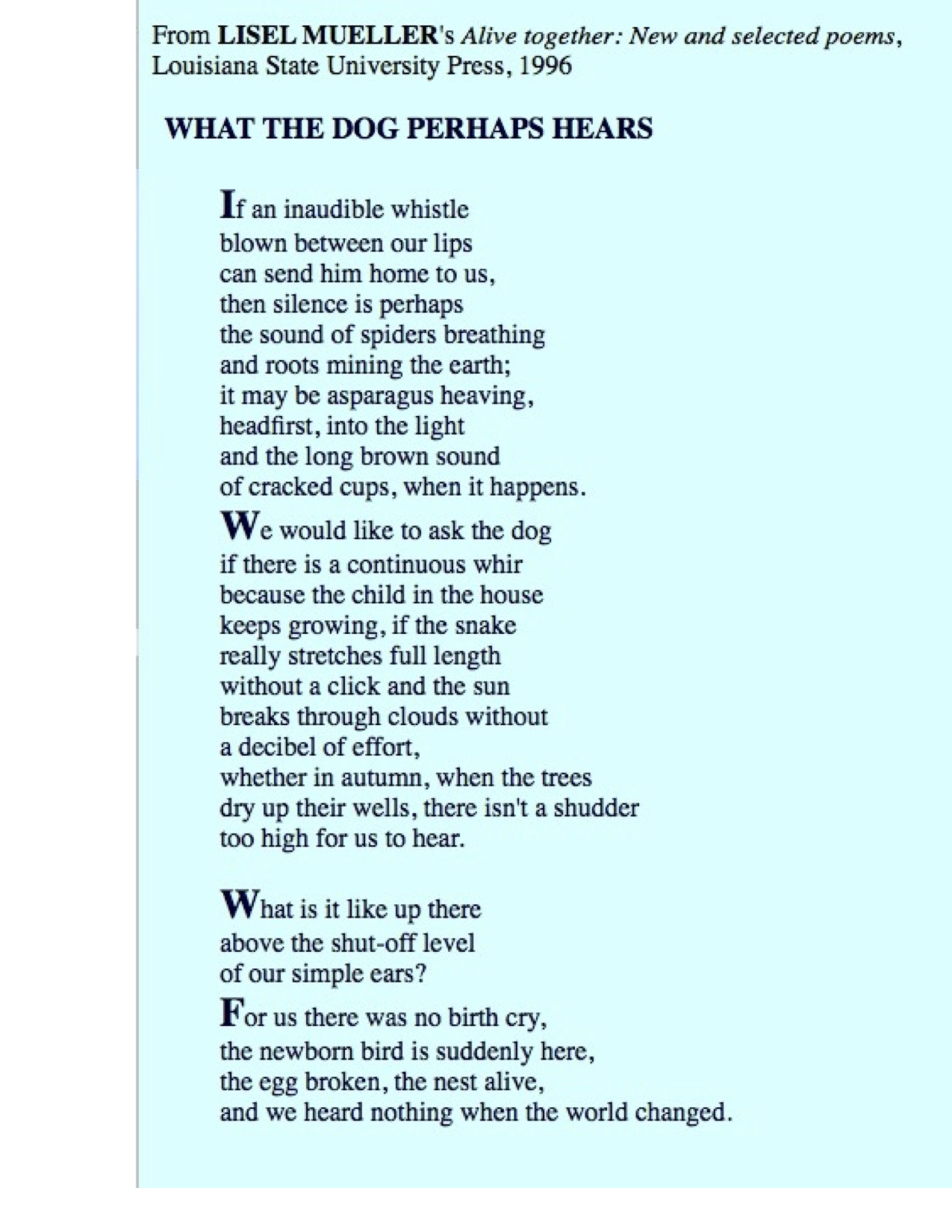What is heartfelt listening?
Scientifically, the heart is the organ that pumps the blood. Philosophically or spiritually, however, the idea of “heart” is more difficult to put into words.
Heartbreak is emotional anguish. Heartland is the center of a country. The heartless are unfeeling; to know something by heart requires intimate familiarity; and a heartwarming moment will give us a rush a pleasure.
The heart is the essence of individuality, the combination of the way people think, their attachments, prejudices and affections, what they want and how they go about getting or giving up their desires. The heart is the centrality of who people, in actuality, are. To speak of the whole heart is to indicate the entire makeup of a human’s being.
Heartfelt listening, then, is to give our whole attention to that which seeks to awaken our sympathetic emotions, move us away from our self-absorption, and make us aware that we are part of something bigger than our own preoccupations.
Heartfelt listening pays attention to the whole of life:
Hear yourself. Listen to your body’s energy or weariness, your delighted or disappointed response to routines and surprises, what you hope will happen and what you hope to avoid.
Hear others. Listen to the stories, the convictions or confusions, the suppressed sorrows and obvious enthusiasms of the grocery store clerk, the customer service representative, the person sitting next to you in the doctor’s waiting room, your child and spouse, your friend and coworker, your parent and neighbor.
Hear nature: breezes and gusts, drizzles and deluges; sun bursts and shadows (listen with your eyes); bees, crickets, song sparrows, spring peepers and squirrels. On the right day in the right place, you might even hear plants growing or the earth sighing.
Hear poems, paintings, songs, and inspirational talks—the insights of poets, artists, musicians and spiritual teachers.
Hear the wisdom of holy writings in the practice of Lectio Divina (spiritual reading).
With the continued practice of heartfelt listening comes the ability to discern, with the ear of your heart, the still, small voice of love—of God.
3 levels of heartfelt listening
The first level of listening is to become aware of my own distractions. The mind skitters and scurries after its own thoughts. Your words make me happy, sad or bored, remind me of my own stories and what I want to say as soon as you pause, or disinterest me while I think about what’s next and what’s for dinner, want attention or want to be away from here. Awareness of my thoughts brings the ability to let these distractions pass so I can move into the second level of listening.
At the second level, I listen to you. I reach beyond my own annoyance, crossness, impatience, self-importance and weak attention to hear the words you speak and the emotions you are feeling. I make a welcoming place for you to settle in and be, I make a space for you to hear yourself without calling attention to myself by speaking or turning the conversation back to me. I give you the gift of attention.
At the third level of listening, I make space for love, for God to be present to break open my heart to enlarge my compassion for you, for the world, for everything that has being.
(3 levels of listening adapted from a blog post by Michael Warden.)
What is compassion and how do we learn it?
To have sensitivity and concern, to be warm-hearted and kind enough to feel another’s feelings we enter compassion—that chamber of eternity in the heart, at once bright-shining and semi-transparent, through which we catch a glimpse of the mystery of our interconnection. The chamber of the heart where compassion abides is shaped by what we listen to.
Nuns and monks (monastics) and poets know that to listen with heartfelt attention, is to expand the heart to make room for increasing compassion. But this is a mystery, and one better expressed through art than through attempted explanations. So, I’ve found a poem and a video that illustrate poetic, monastic insights about what happens when we do or don’t listen.
“What the dog perhaps hears” by Lisel Mueller
From her 1996 book Alive Together: new and selected poems, this playful poem is serious in its invitation. It asks us to be present, alive together with the world, and to imagine all that we miss when we do not attune the ear of the heart to listen to everything with heightened sensitivity. For reading clarity, please click on this image of the poem to go to the Brandeis University page that hosts it:

And for further meditation on heartfelt listening, here is a contemplative, 3-minute video, “Lectio in a Monastery of the Heart,” from Benetvision (found at JoanChittister.org), which explains the ancient monastic practice of Lectio Divina—a way of listening with heartfelt attention to spiritual readings. Sister Joan invites you to view this, to contemplate whether you are called to this practice, to “hear God’s voice..” to “not resist a softer, more compassionate heart.”
Heartfelt listening breaks your heart
Heartfelt listening breaks the heart open. When we break down the word compassion to its latin roots, we discover “com” (together) and “pati” (to suffer). Compassion is to suffer together.
Suffering, in this world, is a given. “Try to exclude the possibility of suffering which the order of nature and the existence of free wills involve,” C.S. Lewis wrote in contemplating how suffering confers agency upon life, “and you find that you have excluded life itself.”
Quoted from Brainpickings.org by Maria Popova
While we cannot escape suffering, we do have power over our response to it. We can choose to let pain can harden us, make us coldhearted. Or we can choose, as George Bernard Shaw believed we ought, to understand “suffering as our supreme conduit to empathy,”
Have compassion, experience empathy, feel another’s pain. This feeling that results from heartfelt listening connects me to the other, enables me to care enough to pay attention to lives other than my own small one, to make me understand the humbling truth that I am part of something bigger.
To engage in heartfelt listening is to surrender self-importance, to allow “a softer, more compassionate heart” to grow in me, to expand the measure of love in the world.
